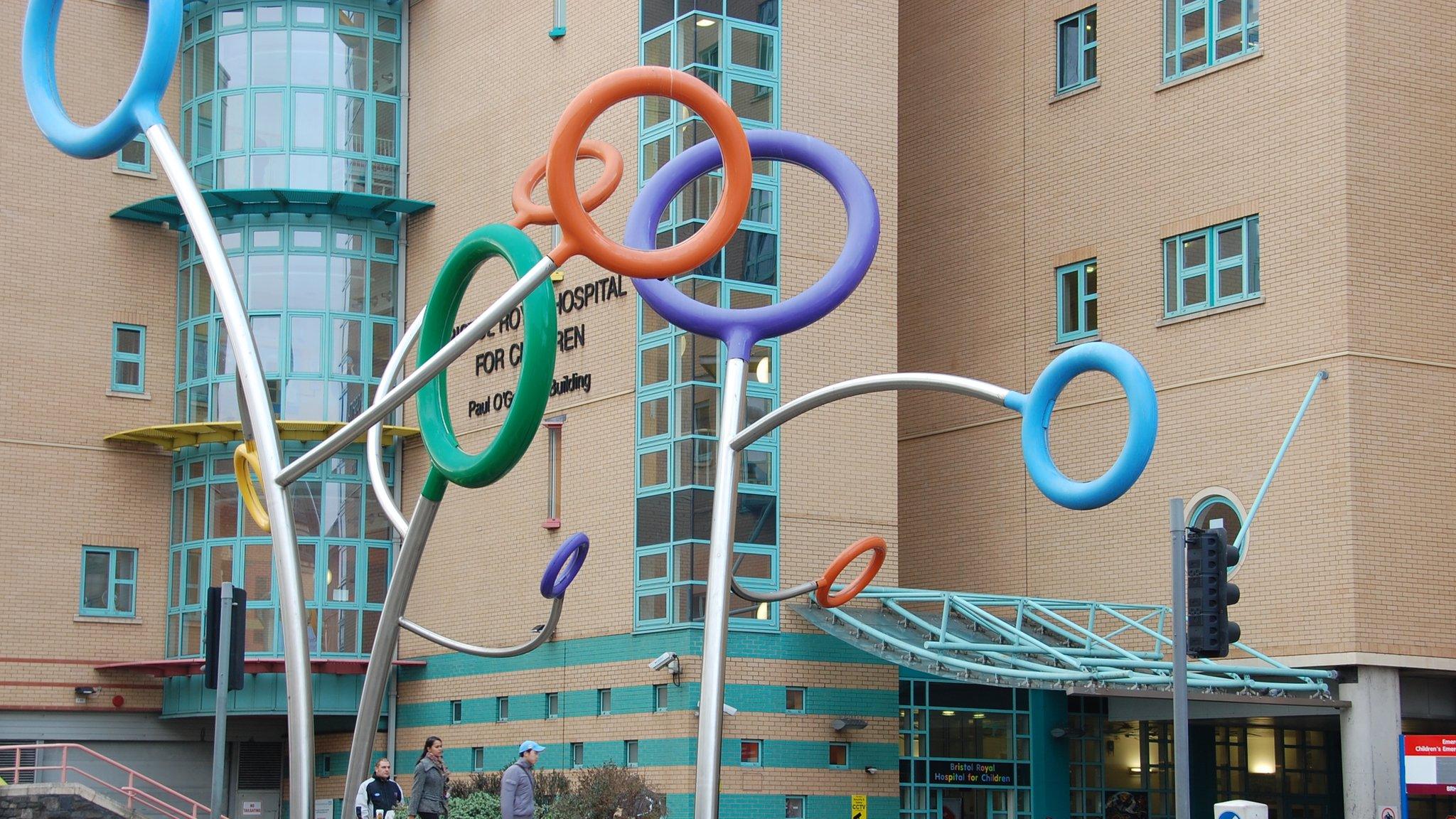GPs in Somerset consider stopping MMR jabs in NHS funding row
- Published
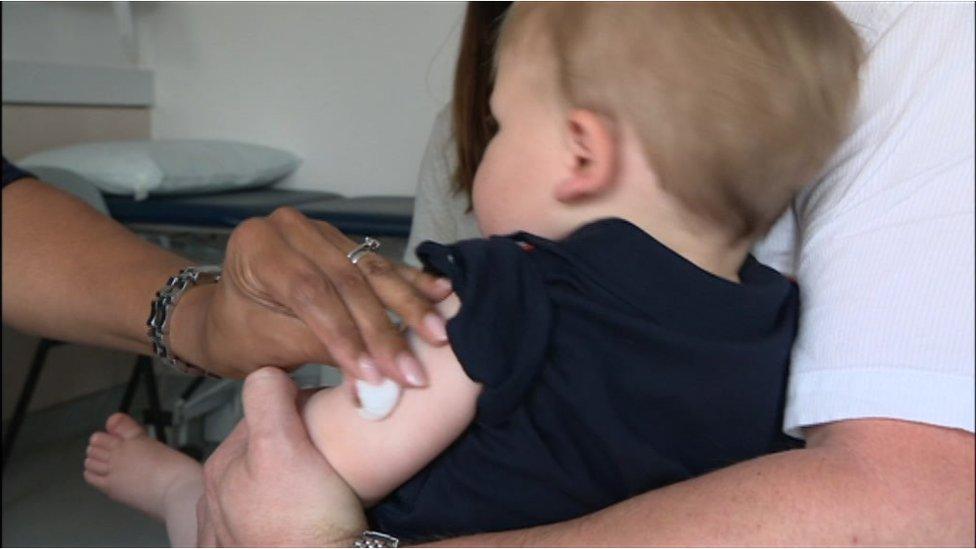
GPs have to vaccinate 95% of eligible children with both MMR jabs before the NHS will pay the full dividend
GPs in Somerset could stop providing children with the measles, mumps and rubella (MMR) vaccination because of a row over changes to NHS funding.
Doctors must vaccinate 95% of eligible children before the NHS will pay the full dividend for both MMR jabs.
The Somerset Local Medical Committee, which represents GPs, said doctors should consider the "economic viability" of new targets.
Some GPs say that is unachievable, but fear the impact of denying the service.
Healthcare GPs used to get the full incentive payment if they managed to give 90% of under-fives both MMR doses.
That target increased to 95% in April 2021, but the effect is only being fully felt now the financial year has come to an end and payments are being awarded.
Hard to reach quota
Surgeries can also no longer exempt patients, except in exceptional circumstances.
The British Medical Association said immunization used to be part of a surgery's core service, but now it is part of the Quality and Outcomes Framework (QOF), which has a more target-driven focus.
A spokesperson for the BMA, Dr Kieran Sharrock said there are factors that make it especially hard for surgeries in some areas to reach the full quota of MMR vaccinations.
These include parents opting to have their children vaccinated abroad.
"One of the things that makes it harder is that if a patient refuses to have the immunisation, despite education, then you can't say, 'Well, they refused,'" he said.
"That will bring you down. The other thing is that if someone has had the immunisation, but somewhere else, you can't record that."
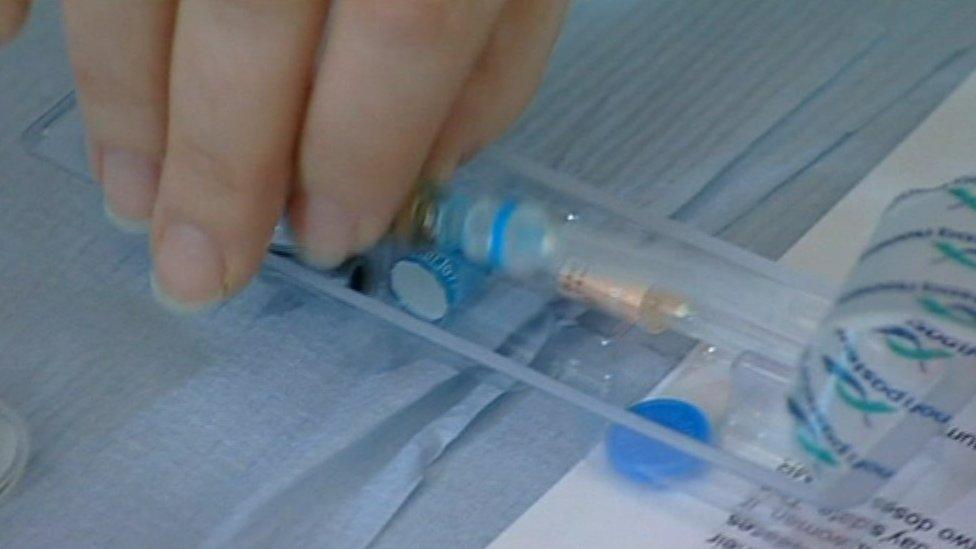
GPs are not able to record a child who has had the first immunisation at another surgery
The Somerset LMC is advising GP practices to consider "the viability of providing this service in future years" following the change in remuneration for childhood MMR jabs.
In a recent newsletter sent to all Somerset GPs, Dr Karen Sylvester, the LMC Chairman, said NHS England, which commissions the targets, has refused to re-negotiate the QOF payments linked to the childhood vaccination programme.
"Some practices may find that they have provided the service optimally in the past year," she added. "But may no receive any of the QOF income associated with the (service)."
One GP in the county, who preferred to remain anonymous, told the BBC: "It's demoralising to be working towards a target you can't achieve.
"The economic thing to do would be to consider not providing it.
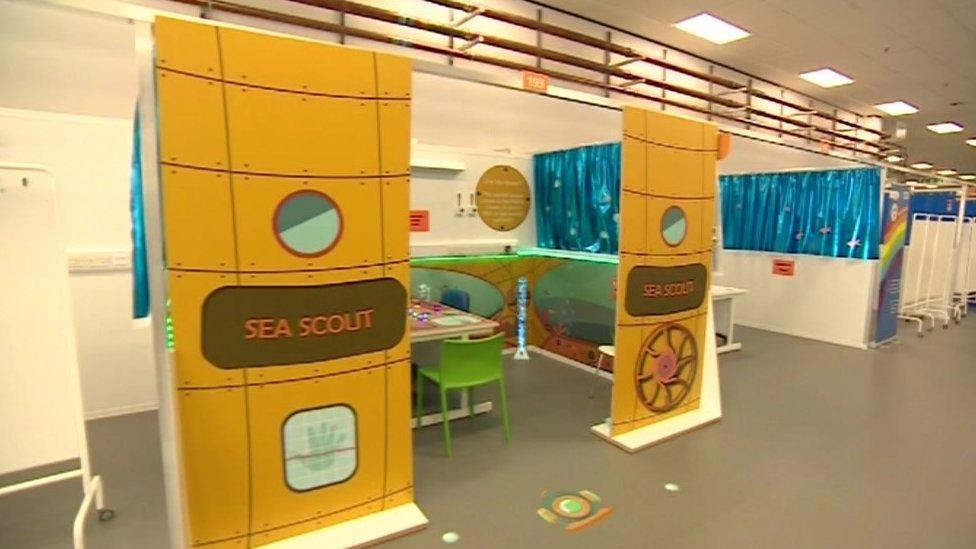
"The economic thing to do would be to consider not providing it (the MMR jab)," said one GP, who preferred to remain anonymous
"Whether one would disengage from doing it would depend on how good the alternative provision was.
"I would worry about people having to travel and the impact that that would have on vaccination rates.
"And with COVID, there's also been a huge wave of anti-vax feeling. There are subgroups of society who do not feel that's the right thing to do," she added.
Another Somerset GP, who also wanted to remain anonymous, explained how practices can feel victimised because there is no flexibility allowed to account for local circumstances.
He said some GPs are using up to £4,000 a year from their own income to fund the service.
"The best we've ever achieved has been in the high 80s, because of the population we serve here and their beliefs around immunization specifically.
"We can't help but feel punished and undervalued because of this, taking a pay cut to fund an essential service."
Since the pandemic, there has been a significant drop in the percentage of under-five-year-olds that have had two MMR doses.
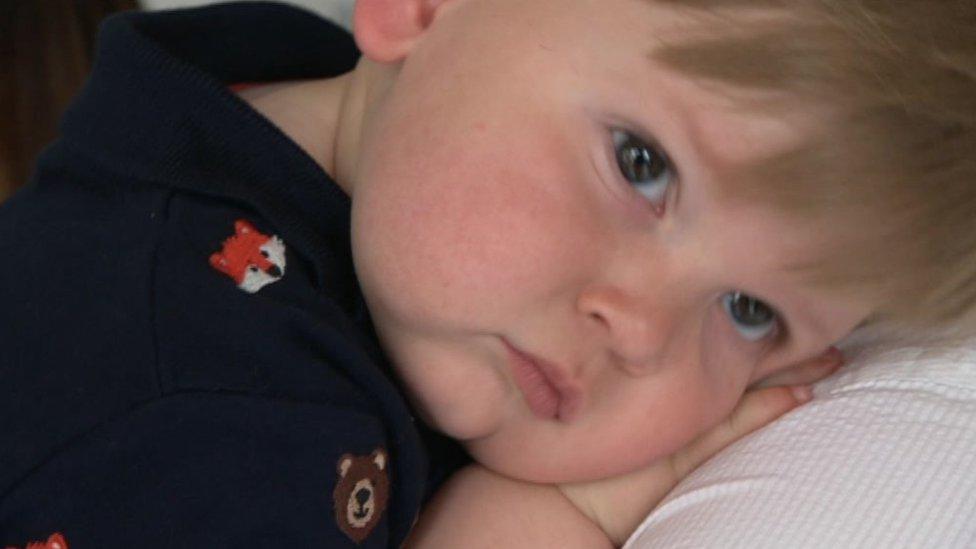
Some areas have seen a significant drop in vaccination rates
Bristol has the lowest rate at 85.4% in 2020/2021. The city also saw the biggest decrease, of almost 2% compared to 2019/2020, when the figure stood at 87.3%.
A spokesman for NHS England and NHS Improvement said: "This is a nationally negotiated contract.
"We encourage parents to ensure their child is up to date with their vaccination to protect them against ill-health."

Follow BBC West on Facebook, external, Twitter, external and Instagram, external. Send your story ideas to: bristol@bbc.co.uk , external
Related topics
- Published31 January 2017
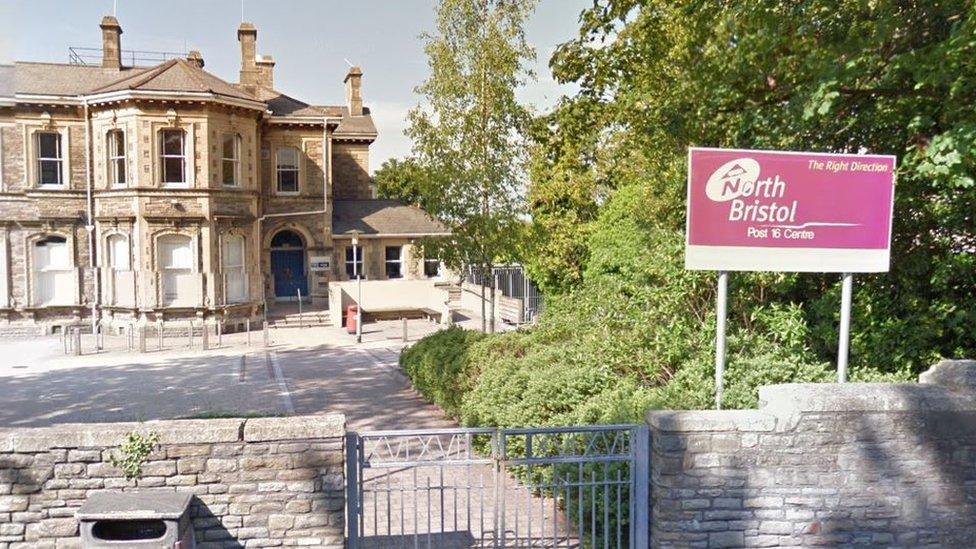
- Published30 June 2018
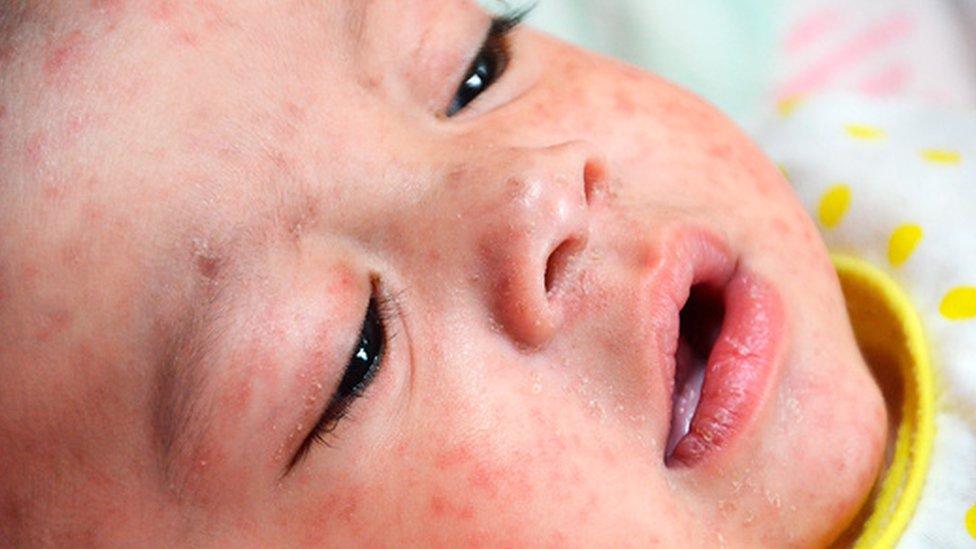
- Published27 May 2014
